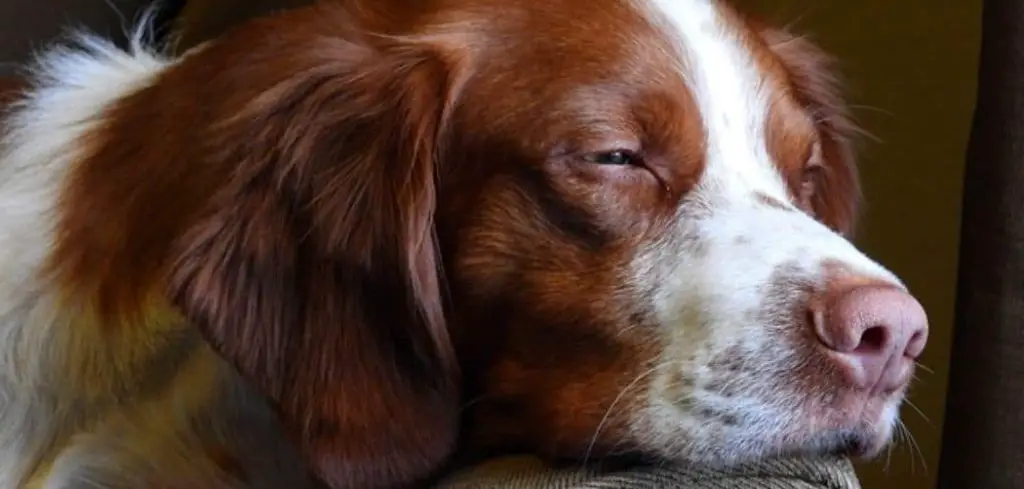If your dog is drinking a lot of water and having diarrhea, it’s a combination that may signal a deeper health concern. While increased thirst and loose stools can happen occasionally, frequent or sudden onset may point to dehydration, infection, or organ trouble.
We outline the common causes of dog drinking a lot of water and diarrhea, what you can do at home, and when to seek veterinary help.
Dog Drinking a Lot of Water and Diarrhea — Why It Happens
Excessive thirst and diarrhea can occur due to gastrointestinal infections, food changes, parasites, kidney disease, or diabetes. These symptoms often go hand-in-hand, as diarrhea leads to fluid loss, prompting your dog to drink more water to stay hydrated.

Common Causes of Dog Drinking a Lot of Water and Diarrhea
Dietary Indiscretion or Sudden Food Changes
Dogs may develop diarrhea after eating something unusual, fatty, or spoiled.
Even switching food brands or protein sources too quickly can upset the gut.
Diarrhea from dietary issues usually resolves within 24–48 hours with rest and a bland diet.
Parasites (Giardia, Worms)
Internal parasites like giardia, roundworms, or hookworms can cause watery stools and increased water intake.
You may also notice weight loss, bloating, or a dull coat.
Fecal tests at the vet can confirm the presence of parasites and guide treatment.
Gastrointestinal Infections
Viral or bacterial infections can inflame the digestive tract, leading to diarrhea, nausea, and increased thirst.
These infections can come from contaminated water, other dogs, or poor hygiene.
Treatment often includes fluids, medication, and temporary dietary changes.
Related: Dog drinking a lot of water and not eating (Here’s why)
Kidney Disease
In dogs with kidney problems, toxins build up in the blood and cause both vomiting and diarrhea.
Excessive drinking happens because the kidneys can’t conserve water effectively.
Watch for weight loss, bad breath, or loss of appetite. Bloodwork confirms diagnosis.
Diabetes Mellitus
Diabetes causes the body to lose fluids rapidly, prompting dogs to drink more.
Diarrhea can occur if the condition is uncontrolled or if ketoacidosis develops.
Insulin therapy and dietary adjustments are needed to manage the disease.
Food Allergies or Intolerances
Some dogs may have sensitivities to certain proteins or ingredients that trigger digestive upset.
Chronic diarrhea paired with itching or ear infections may point to an allergy.
An elimination diet may help identify the cause.
What to Do If Your Dog Is Drinking a Lot and Has Diarrhea
Provide small amounts of clean water frequently to prevent dehydration but avoid letting your dog gulp too much at once.
Withhold food for 6–12 hours, then introduce a bland diet like boiled chicken and rice.
Avoid giving treats, table scraps, or dairy products until stools normalize.
Monitor the frequency and consistency of bowel movements.
If symptoms don’t improve in 24–48 hours—or worsen—seek veterinary help.
When to Call or Visit Your Vet
Reach out to your vet if your dog:
Has diarrhea lasting more than 48 hours
Shows signs of dehydration (sunken eyes, dry gums)
Becomes lethargic or vomits in addition to diarrhea
Has blood in the stool or very dark, tarry stools
Drinks excessively without improvement in symptoms
Testing may include fecal analysis, bloodwork, and possibly imaging to rule out more serious conditions.
Read more: Dog Drinking a Lot of Water and Vomiting (Here’s why)
Key Takeaway
If your dog is drinking a lot of water and has diarrhea, it may be a sign of infection, parasites, or organ dysfunction—not just a dietary issue.
Act quickly to prevent dehydration and don’t wait to consult your vet if symptoms linger or escalate. Early care ensures your dog bounces back safely and comfortably.
